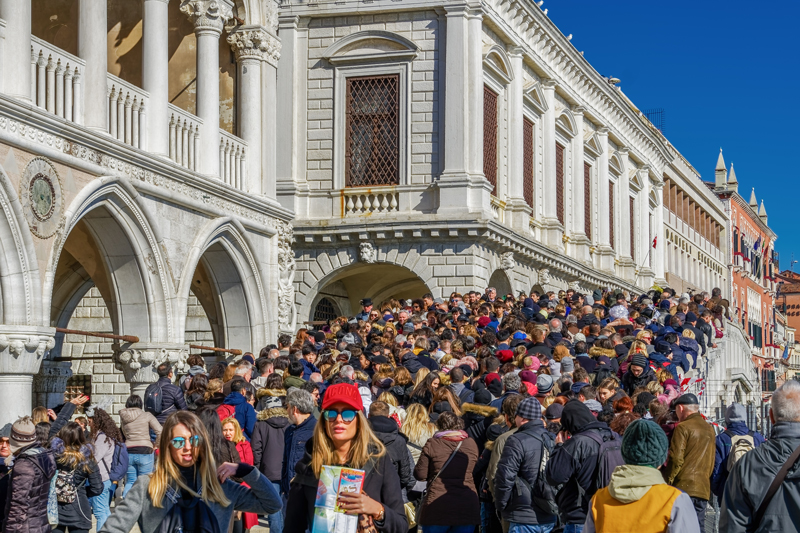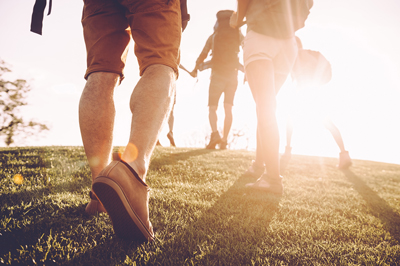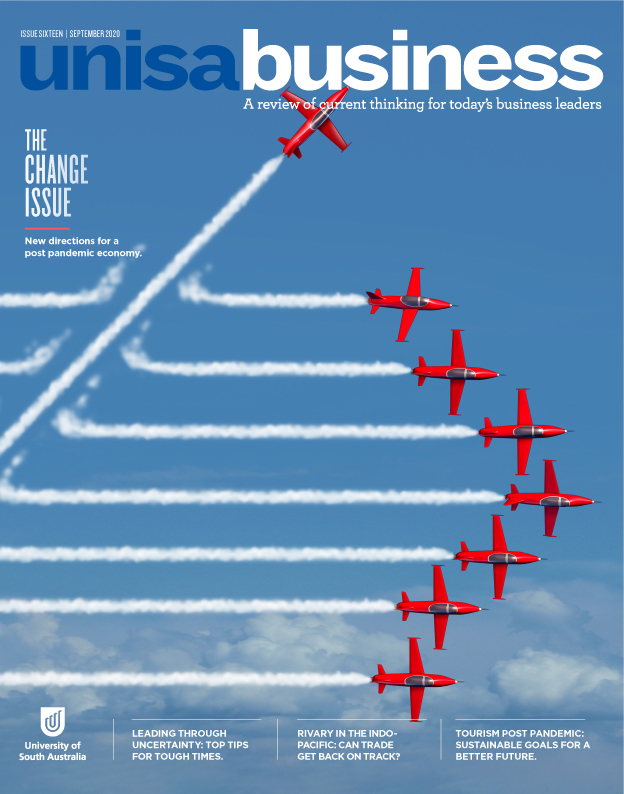01 September 2020
Author: Dr Freya Higgins-Desbiolles
The COVID-19 pandemic crisis offers a rare and invaluable opportunity to rethink and reset tourism for a better future. Here, Dr Freya Higgins-Desbiolles discussed the vital importance of community, social connections and society and how tourism could be made accountable to social and ecological limits of the planet.
In March this year, the same month that COVID-19 was officially declared a pandemic, well-known author and philosopher, Yuval Noah Harari, wrote about COVID-19 in the Financial Times, opening with “This storm will pass. But the choices we make now could change our lives for years to come.”
Insightful and to the point, his words identify the need for a global plan, a solidarity across countries, and a desire to work together - something still relatively out of reach. Yet the idea of connectedness is critical, especially as we deal with the fallout from COVID-19.
In response to the crisis, will we embark on even more hyper forms of tourism consumption, or will we become more thoughtful and discerning in our tourism consumption choices?
For tourism, the pandemic presents a pivotal moment. Upending long taken-for-granted flows of people and goods as COVID-19 spread through the channels of airports, cruise ships and trains that enabled these flows, one of the first blows was to tourism. Faced with the stark choice of maintaining public health and keeping service industries operating, governments around the world shut down borders, blocked tourists and told people to shelter in place at home.
As a result, the COVID-19 pandemic has devastated travel and tourism, hospitality, arts and events-affiliated sectors, with the United Nations World Tourism Organization estimating an 80 per cent decline in international tourism in 2020; a possible US$1.2 trillion loss in tourism export revenues; and a potential loss of up to 120 million direct tourism jobs.
More importantly, over 864,600 people have died, innumerous others have been incapacitated, and health systems have been overwhelmed.
The human impact of this crisis cannot be understated. Nor can we underplay the how reliant we are on care and service workers – the nurses, teachers, grocery store clerks and gig economy delivery drivers – all declared essential workers to help us shelter from the pandemic.
It wasn’t long before the world also realised how dependent the global economy is on tourism, and how precarious, underpaid and vulnerable many of these jobs within this sector are.
COVID-19 has caused us to re-learn that community and solidarity matters; that caring, and service work sustains us; and that we are only as well and secure as the most vulnerable amongst us.
This is why community cafes became nodes of care and support, ensuring that the community’s most vulnerable people were looked after. This is why we were able to suddenly shelter the homeless in empty hotels when before it seemed as if we had no solution. This is why, at the height of the pandemic, that Prime Minister Boris Johnson refuted the claim of his predecessor, Margaret Thatcher, that “there’s no such thing as society”, only individuals looking after themselves.
The pandemic has reminded us that, while markets have their place, society is what sustains us, and social ties are what help us weather multiple forms of crisis.
The COVID-19 crisis also marked a moment of ecological recovery. As people faced temporary lockdown, places around the world reported reduced air pollution, animals exploring vacant city streets, and waterways that ran clean once again.

(Photo by Bestravelvideo / Shutterstock.com)
Reports from Venice, some factual and some not, claimed that flamingos and dolphins were appearing in the now cleaner canals. And, even when these stories may have stretched the truth, they still spoke of a human consciousness that we are placing unsustainable pressures on our beautiful natural environments.
The lockdowns have opened up our imaginations to our ways of living in the world, and how we must ensure enough space to sustain nature and the other living things with which we share this finite planet.
This crisis has also shown that some places have enjoyed being tourist free. Venice – a city that has long experienced the damages of overtourism from cruise ships and day-trippers – has once again been able to breathe, enabling Venetians to enjoy their city as it once was, and revel in the quiet and calm.
While no one wanted this crisis, there are still lessons to learn – and here we have allowed the relationships between society, ecology and economy to get out of balance in our efforts to grow our economies through tourism.

Reforming tourism in the aftermath of COVID-19 should involve a rethink of our economies, societies and lifestyles, and how they might work together better for the benefit of all.
This crisis will pass, but scientists have warned us to be prepared for more frequent and even greater crises due to the impacts of global climate change. As we look forward to leaving the pandemic crisis behind, we should also be looking to build a more fair, resilient and sustainable future. Reforming tourism along more socially and ecologically just lines will help us to be better prepared for what may come.
What can you do?
- Think about your personal ecological footprint in your travel and tourism choices.
- Holiday domestically as seen in the #bookthemout and #holidayherethisyear
- Consider supporting communities impacted by drought, bushfires and other crises.
- Avoid over-touristed sites and communities in peak times and instead explore less explored sites and places.
- Consciously spend your dollars to ensure your visit benefits the local communities you visit.
- Support sectors that deliver social and environmental benefits to local communities, including ecotourism, Aboriginal tourism and community based and social enterprises.
What about governments? What steps should they take?
- Preference local businesses over multinational corporations.
- Ensure tourism corporations pay fair taxes and are not allowed to push market failure costs onto the public purse.
- If tourism businesses go bankrupt, ensure workers are paid first.
- Support alternative tourist models - cooperatives, social enterprises, non-profits and social businesses.
- Ensure state tourism commissions maintain their original mission of public service to facilitate tourism for the public good.
- Facilitate and promote educational tourism, citizen science, social tourism, community exchanges.
- Restrict privatisation of public assets such as national parks and protected areas to ensure ecological protection of conservation environments.
- Consult the local community in tourism development decisions.
- Secure a universal basic income, solid rights and good working conditions for tourism and hospitality workers. It should no longer be tolerated that tourism workers do not receive a living wage and secure conditions for their labour in the industry.
This article is based on this published paper: Socialising tourism for social and ecological justice after COVID-19.
Banner image: The Trevi Fountain, Rome. Pre-COVID-19 an average of 1200 tourists visited per hour; now, amid pandemic, it’s an empty space. (Photos by JIMMOYHT / luana183 Shutterstock.com)



